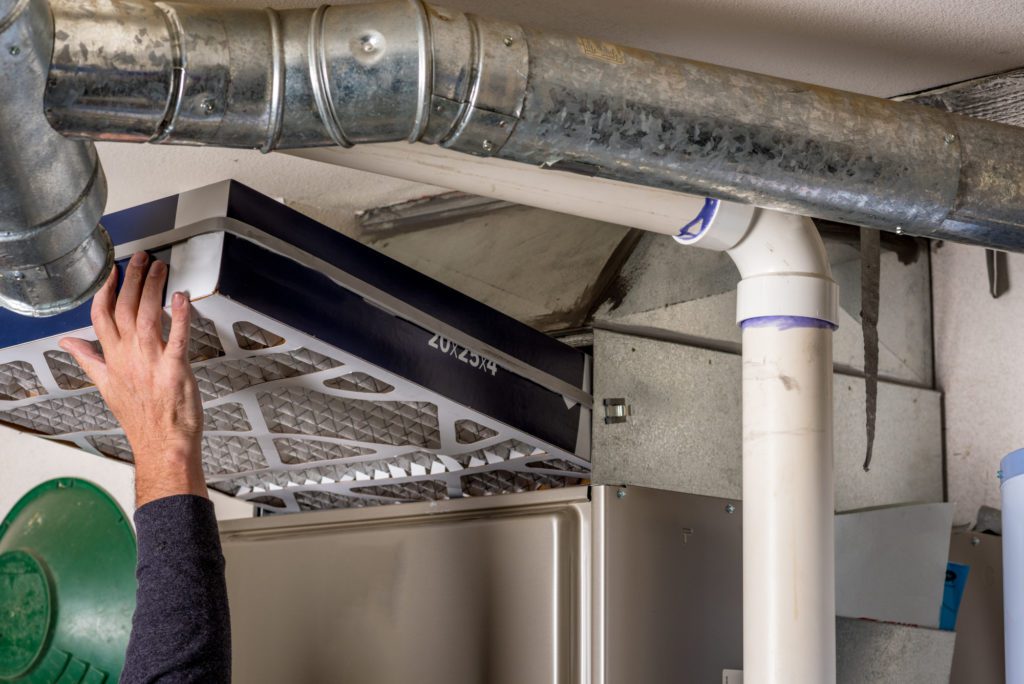
Difference Between HVAC System and a Furnace
The terms HVAC system and furnace are often used interchangeably, but they actually refer to two different systems. HVAC stands for Heating, Ventilation, and Air Conditioning and refers to a complete system that can both cool and heats your home. A furnace is one component of an HVAC system that provides heat for your home. In this article, we’ll explain the difference between an HVAC system and a furnace so you can know exactly what kind of system you have in your home.
How it Works: HVAC Systems vs a Furnace
The difference between an HVAC system and a furnace is that an HVAC system is a complete climate control unit while a furnace is just one component of the system that provides heat. An HVAC system typically consists of the furnace, air handler unit, condensate pump, evaporator coil, and thermostat while a furnace is powered by electricity, natural gas, oil, or propane. It is important to understand the differences between an HVAC system and a furnace in order to make sure you have the right type of system for your home.
HVAC Systems
- An HVAC system is a complex and integrated heating, ventilation, and air conditioning unit that works together to provide climate control in your home.
- The system typically consists of the furnace, the air handling unit (AHU), the condensate pump, an evaporator coil, and a thermostat.
- The furnace is the primary source of heat in the system and it is usually powered by either electricity, natural gas, or oil.
- The air handling unit circulates conditioned air throughout your home and is usually connected to a ductwork system.
- The condensate pump removes moisture from the air by draining condensate away from the evaporator coil which absorbs heat from its environment.
- Finally, the thermostat controls the temperature and settings of your HVAC system.
Furnace
- A furnace is one component of an HVAC system that provides heating for a home or business.
- A furnace typically runs on electricity, natural gas, oil, or propane and can be powered by either gas or electric heaters.
- It heats the air by using a circulating fan to draw in cooler air, heats it up, and then sends it back out through ductwork.
- The furnace can also be used to maintain a constant temperature during the winter months.
- Furnaces come in different sizes and types such as single-stage, two-stage, and variable-speed models which all offer different levels of efficiency and performance.


Benefits of Installing an HVAC System
Installing an HVAC system offers a number of benefits that can improve the comfort and quality of life in your home.
- First and foremost, HVAC systems are designed to provide consistent temperature control throughout a home or business.
- With this level of climate control, you can keep your home at an optimal temperature no matter what the weather outside is like.
- Additionally, HVAC systems can help reduce your energy bills by providing more efficient heating and cooling solutions.
- By installing an HVAC system in your home, you can rest assured that your family will always be comfortable while also saving money on utilities.
- Lastly, an HVAC system is a great way to improve the air quality in your home. HVAC systems use air filters to trap and remove dust, dirt, and other contaminants from the air which can help reduce respiratory illnesses and allergies.
In conclusion, there are significant differences between an HVAC system and a furnace. Installing an HVAC system in your home can provide many benefits such as energy savings, improved air quality, and consistent temperature control throughout the year.
Cost Comparison Between a Furnace and an HVAC System
The cost comparison between a furnace and an HVAC system is an important factor to consider when deciding which type of climate control unit is right for your home.
- The cost of a furnace alone can range anywhere from $1,500 to $7,000 or more depending on the size, power source, and efficiency rating.
- An HVAC system will typically cost between $5,000 and $20,000.
- This higher price tag is due to the additional components of an HVAC system such as the air handler unit, condensate pump, evaporator coil, and thermostat.


Ultimately, it is important to consider both the upfront cost and long-term savings when deciding between a furnace and an HVAC system. While the upfront cost of an HVAC system is typically higher than that of a furnace, it can offer more efficient heating and cooling solutions which in turn can help lower your energy bills over time.
Can You Just Have a Furnace?
Yes, it is possible to have just a furnace as part of your home’s heating and cooling system. Furnaces are available in several different types. These include single-stage furnaces, two-stage furnaces, and variable-speed furnaces.
- Single-stage furnaces are the least expensive option and offer basic temperature control.
- Two-stage furnaces are more efficient but cost more and have better temperature control capabilities.
- Variable-speed furnaces are the most expensive option, providing maximum efficiency and comfort levels.
If you simply need basic heating for your home or business, then a furnace alone may be all you need. However, if you want to maximize your energy efficiency and comfort levels, then you should consider installing an HVAC system. An HVAC system offers more efficient heating and cooling solutions that can help reduce your energy bills over time.


Tips for Maintaining Your HVAC System or Furnace
Maintaining a furnace or HVAC system is an essential part of keeping them running efficiently and effectively. Regular maintenance ensures that an HVAC system or furnace is working correctly and safely, while also helping you save money on energy bills. Here are some tips for maintaining your furnace or HVAC system:
- First, regularly change the air filters in your furnace or HVAC system. This helps ensure that the air quality in your home remains clean and healthy, while also helping increase the efficiency of your heating and cooling system.
- Second, schedule an annual check-up with a professional HVAC technician. A professional can inspect and service your system for any potential problems and can offer advice on how to get the most out of your system.
- Third, make sure all vents are open and unobstructed so that air can flow freely throughout the home.
- Fourth, replace any worn weatherstripping around windows or doors to ensure that heated or cooled air isn’t escaping from the home.
- Finally, keep your outdoor unit clean and free of debris. This will help increase the efficiency and lifespan of the system.
By following these tips, you can ensure that your furnace or HVAC system is running efficiently and safely, while also saving money on energy bills in the long run.




Leave a Reply